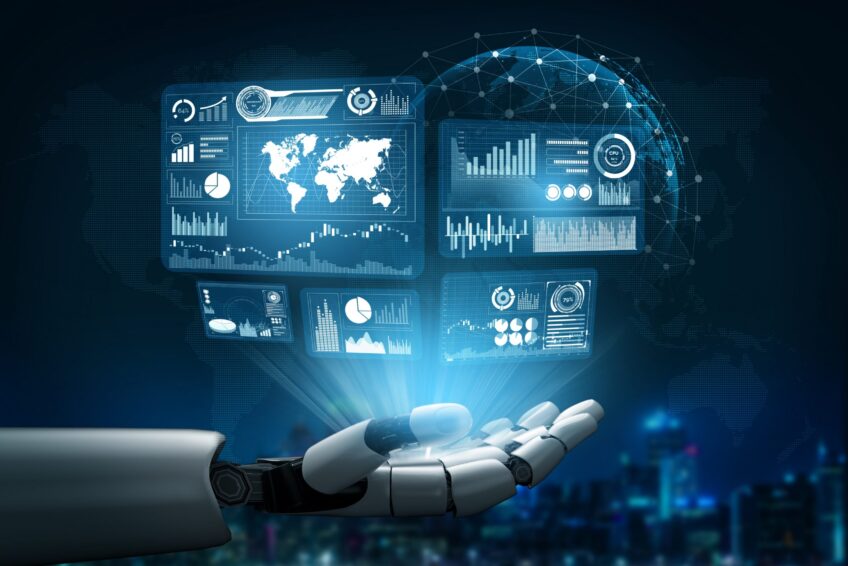As long as AI unleashes its new "magical powers" on the market, conflicts in the tech sector and society as a whole will escalate. What kind of dangers will humanity face? Do you think it's a science fiction film? That is not the case! This is a legitimate problem, and individuals from various professions are discussing it right now, as you read this piece.
Many scientists and technology professionals are concerned about what we may expect in the coming years as machine learning becomes more clever. In March, for example, an open letter co-signed by several AI representatives was issued, requesting a 6-month freeze on AI developments.
Concurrently (and rather controversially), some of these same corporations are laying off ethical AI workers. It appears that ethical conflicts are igniting the titans, correct?
In certain circumstances, renowned AI professionals are leaving their positions. That was the case with Geoffrey Hinton, an AI pioneer who left Google last week. Although he made a point of not linking his resignation to the company's ethics issues, the fact reinforced concerns about AI development and prompted people to question the lack of transparency while big tech companies make terrifying progress in their research and discoveries, confronting each other in a disproportionate dispute.
Who Is Geoffrey Hinton, The Self-Proclaimed "Godfather Of AI"?
Geoffrey Hinton, 75, is a cognitive psychologist and computer scientist best recognized for his work in deep learning and neural network research.
Hinton assisted in the development of machine-learning software that could detect objects in 2012, which paved the way for modern AI-image generators, for example, and then for LLMs like Chat-GPT and Google Bard. At the University of Toronto, he collaborates with two students. Ilya Sutskever, the co-founder and chief scientist of OpenAi and the man behind Chat-GPT, is one of them.
Geoffrey Hinton, who has a strong academic background at major universities and achievements such as the 2018 Turing Award, left Google last week after working there for ten years. Hinton now wants to focus on AI that is safe and ethical.
The Departure Of Hinton And The Warnings
According to The New York Times, the scientist quit Google so that he could speak freely about the dangers of artificial intelligence. To clarify his reasons, he remarked on Twitter, "In the NYT today, Cade Metz implies that I left Google to criticize Google." Actually, I departed so that I could discuss the perils of AI without having to consider how this affects Google. Google has operated in a responsible manner."
After leaving Google, Hinton highlighted worries about overreliance on AI, privacy concerns, and ethical difficulties. Let's get right to the meat of his warnings:
Is It Conceivable For Machines To Be Smarter Than Humans?
Machines becoming more clever than humans, according to Geoffrey Hinton, is only a matter of time. "Right now, they're not more intelligent than us, as far as I can tell," he says in a BBC interview. But I believe they will be soon." alluding to AI chatbots, describing their danger as "very alarming." He said that in artificial intelligence, neural networks are systems that learn and process information in a manner comparable to the human brain. As a result, AIs, like humans, learn from experience. This is advanced learning.
When contrasting digital and biological systems, he stated, "...the big difference is that with digital systems, you have many copies of the same set of weights, the same model of the world."
as well as complimented "And all of these copies can learn independently but instantly share their knowledge." So it's as if you had 10,000 people and when one of them learned something, everyone else knew it. That is how chatbots can know so much more than any single person."
AI In The Hands Of "Bad Actors"
Nonetheless, in an interview with the BBC, Hinton discussed the true hazards of having AI chatbots in the wrong hands, explaining the term "bad actors" he used before speaking with The New York Times. He feels that great intelligence can be devastated if it falls into the hands of the wrong people, referring to major regimes such as Russia.
The Significance Of Ethical AI Development
It is crucial to note that, unlike the many Open Letter signatories listed at the beginning of this piece, Hinton believes that we should not halt AI advancement and that the government should take over policy development to ensure that AI continues to evolve responsibly."Even if everybody in the US stopped developing it, China would just get a big lead," Hinton told the BBC. He went on to say that it would be difficult to know if everyone truly ceased researching due to worldwide rivalry.
I must admit that I have already published various AI essays on this site, and this may be the most difficult one yet. It's just not that easy to weigh risks and benefits.
When I consider the many triumphs and breakthroughs the world has achieved through AI, I can't help but wonder how society could progress and gain significant advantages if we pursue responsible AI development.
It can aid human progress in a variety of disciplines, including health research and discoveries, which are currently making significant strides with AI resources.
As content marketers, we believe that AI efficiency can coexist with human innovation. We employ AI writing tools on a daily basis. Naturally, in a responsible manner. Avoiding disinformation and plagiarism while emphasizing originality.
The world would undoubtedly benefit enormously if we had these technical arsenals working together for the greater good, alongside individuals and their human skills that cannot be replicated by robots. By nature, our emotional and creative minds are still accessible, distinctive, and exclusive.
That is why I believe it is possible to contemplate human-AI relations as long as we have well-defined policies and regulations in place to protect humanity's safety and prosperity.

